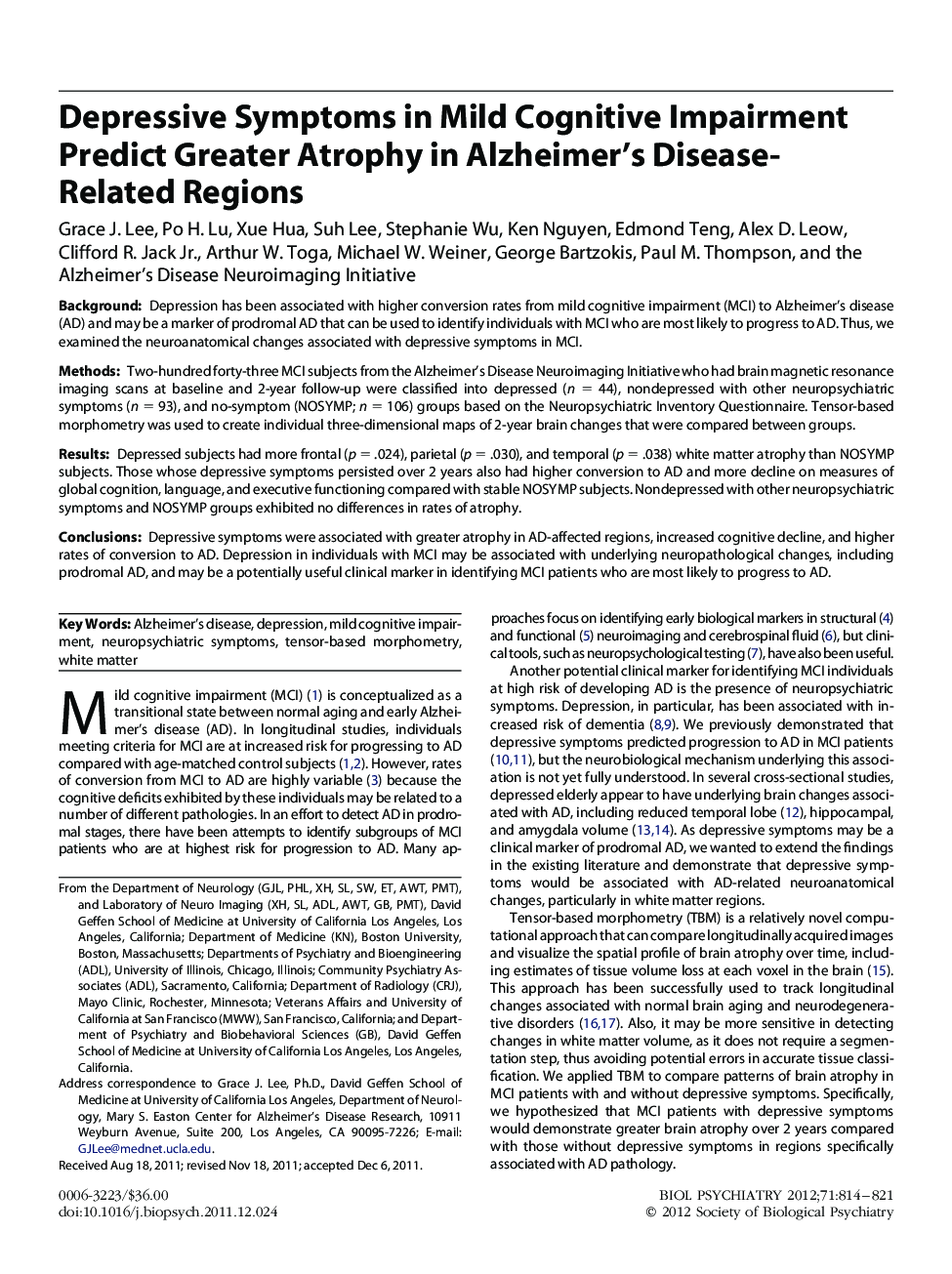| Article ID | Journal | Published Year | Pages | File Type |
|---|---|---|---|---|
| 6227650 | Biological Psychiatry | 2012 | 8 Pages |
BackgroundDepression has been associated with higher conversion rates from mild cognitive impairment (MCI) to Alzheimer's disease (AD) and may be a marker of prodromal AD that can be used to identify individuals with MCI who are most likely to progress to AD. Thus, we examined the neuroanatomical changes associated with depressive symptoms in MCI.MethodsTwo-hundred forty-three MCI subjects from the Alzheimer's Disease Neuroimaging Initiative who had brain magnetic resonance imaging scans at baseline and 2-year follow-up were classified into depressed (n = 44), nondepressed with other neuropsychiatric symptoms (n = 93), and no-symptom (NOSYMP; n = 106) groups based on the Neuropsychiatric Inventory Questionnaire. Tensor-based morphometry was used to create individual three-dimensional maps of 2-year brain changes that were compared between groups.ResultsDepressed subjects had more frontal (p = .024), parietal (p = .030), and temporal (p = .038) white matter atrophy than NOSYMP subjects. Those whose depressive symptoms persisted over 2 years also had higher conversion to AD and more decline on measures of global cognition, language, and executive functioning compared with stable NOSYMP subjects. Nondepressed with other neuropsychiatric symptoms and NOSYMP groups exhibited no differences in rates of atrophy.ConclusionsDepressive symptoms were associated with greater atrophy in AD-affected regions, increased cognitive decline, and higher rates of conversion to AD. Depression in individuals with MCI may be associated with underlying neuropathological changes, including prodromal AD, and may be a potentially useful clinical marker in identifying MCI patients who are most likely to progress to AD.
